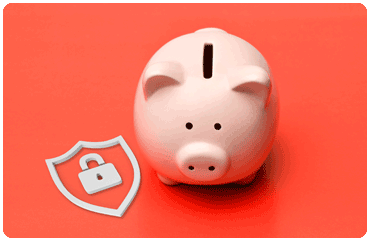A Guide to Spotting Fraud
Defend Your Finances
Whether it's online scams, identity theft, or deceptive schemes, fraud can cause significant financial and emotional damage to individuals and businesses alike.
Fraud prevention starts with awareness. Recognizing the signs of fraud and learning how to protect yourself is crucial in safeguarding your personal and financial well-being.
Use these tips to help stay one step ahead of fraudsters and scammers.

- Trust your instincts: If something appears too good to be true or feels suspicious, it probably is. Fraudsters often prey on individuals' vulnerabilities, promising quick riches, easy solutions, or irresistible opportunities. Stay cautious and maintain a healthy level of skepticism.
- Verify the source: When dealing with unfamiliar individuals or organizations, it is crucial to verify their authenticity. Conduct thorough research and cross-reference information from multiple sources. Check for online reviews, consult reliable sources, or reach out to trusted professionals or authorities to validate the credibility of the person or entity involved.
- Be wary of unsolicited communication: Fraudsters often reach out to potential victims through unsolicited phone calls, emails, or even social media messages. Be cautious when dealing with such communications, especially if they involve requests for personal or financial information. Legitimate organizations typically don't ask for sensitive details or financial transactions through such channels.
- Pay attention to red flags: Certain red flags may indicate potential fraud attempts. These include requests for upfront payments, urgency, pressure tactics, inconsistent or unclear information, or requests for personal details over phone or email. Stay vigilant and question any unusual requests or behaviors that raise doubts.
- Educate yourself: Keep yourself informed and educated about common fraud schemes prevalent in your region or industry. Stay updated on emerging trends, techniques, and warning signs used by fraudsters. Government websites, law enforcement agencies, and consumer protection organizations are excellent sources of information regarding prevalent scams.
- Protect your personal and financial information: Fraudsters often try to obtain personal information, such as Social Security numbers, account details, or passwords, to carry out identity theft or financial fraud. Safeguard your sensitive information by using strong, unique passwords, employing two-factor authentication, and being cautious when sharing personal data online or offline.
- Monitor your accounts: Regularly review your monthly statements and credit report to spot any unauthorized activities or suspicious transactions. Promptly report any discrepancies to your financial institution to prevent further losses or damage.
Fraudsters continue to devise new and sophisticated techniques to exploit unsuspecting individuals. However, by remaining alert, informed, and cautious, individuals can significantly reduce the chances of falling victim to fraud.
« Return to "News & Announcements"
